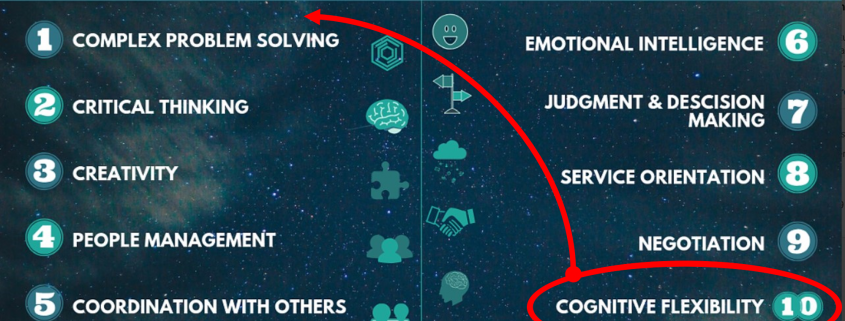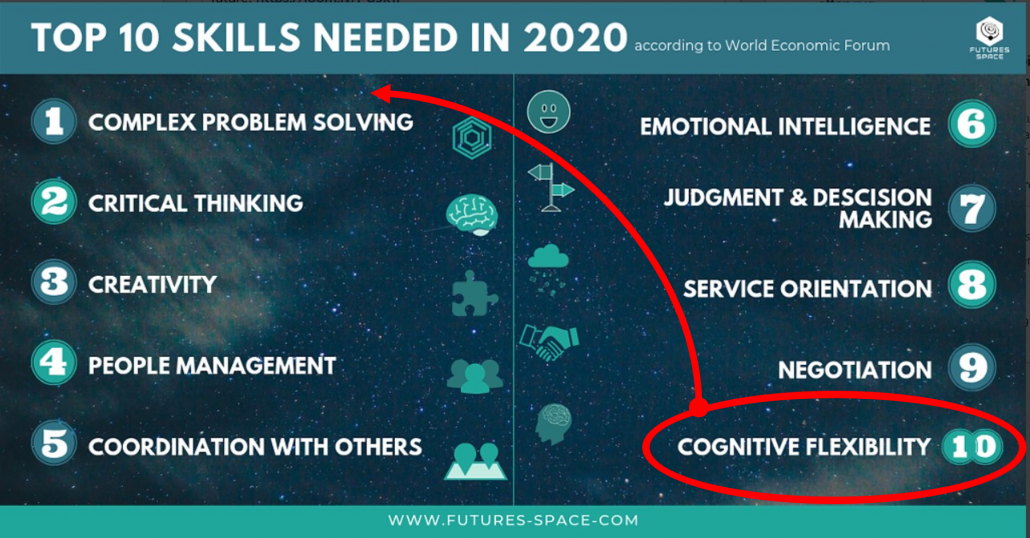Viewpoint: New Management Skills Needed Post-Corona
As if I did not need another reminder, I recently stumbled over a picture (1) that brought home the need to reflect on what I might have taken for granted about the core Management competencies needed to master the challenges ahead.
What skills are now most important?
Before the current crisis, WHO published their list of Top 10 Skills needed in 2020, and they are one of the deep cogitators about just what Sustainability means for businesses in our global socio-economic system. But that was before the pandemic, and I suspect that WHO, given the unprecedented impact, and its continuous lessons-learned, might today rank the capability of Cognitive Flexibility much higher, if not vital.
What`’s so important about Cognitive Flexibility?
As a systems thinker I rate the competency of Cognitive Flexibility as indispensable, even more so today. It is the ability to switch thinking between multiple concepts simultaneously, and embodies awareness, perception, reasoning, and judgement of new situations (2). Certainly a key ability for those having to deal with today’s business and financial turmoil, with its as yet undiscovered consequences.
As a part of motivating management boards to change I used to show a short clip from futurist Joel Barker (3), who insisted that most new ideas and insights came from people at the edge or outside the accepted business paradigm. Applied to management persona, that means that this irritating, non-conformist, non-grounded executive may need recategorizing as a potentially very valuable contributor to future viability. This definitely fits well within the current movement towards more organisational agility.
So what must change?
The summons for businesses, institutions, and governments to face and embrace the future with zest, is in part, the call to build tomorrow’s resilient organisations, with:
• A Board composition that includes directors with cognitive diversity, all helping provide a clear and purposeful forward-looking direction and impetus, in addition to their current strategic and governance remit.
• Management teams that lead, envelop and balance doing what the business does well today but better, with simultaneously doing something new and better, within an inclusive and sustainable working environment.
• Individuals who look over and past their functional and hierarchical roles and qualifications and apply their creativity, or finesse, or passion, to do something differently better.
I love the WHO Top 10 skills list, it says so much!
Thanks for reading to the end, I would be very happy to respond to any thoughts and suggestions at aharvey@carpe-diem-consulting.com.
Tony Harvey,
Aachen 27. April 2020
1: Thank you WHO and Futures-Space.com
2: Thank you Wikipedia and Farlex Dictionary
3: Thank you Joel Barker, PhD. Visionary Leadership


